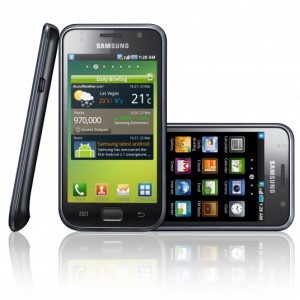NEW DELHI: Samsung Electronics premiered its latest flagship phone, the Galaxy S4, which sports a bigger display and features like gesture controls and will spearhead its efforts to challenge Apple on its home turf. Market watchers said that the much-awaited Galaxy S4 may have disappointed investors who had overblown expectations following months of speculation regarding new features.
Shares in Samsung Electronics fell 1.7 percent in early trade in Seoul on Friday, hours after the launch of the company’s latest flagship smartphone in New York City. Analysts say the release of the Galaxy S4 had already been factored in and investors were aware the share price had hit a ceiling.
“It’s not because the Galaxy S4 failed to meet expectations. It’s just that investors feel technical smartphone upgrades are flattening out,” Bae Seung-Young of Hyundai Securities told AFP.
Jan Dawson, chief telecom analyst at Ovum said, “The Galaxy S4 is a worthy successor to earlier members of this line, and will doubtless sell well. But it highlights a couple of the key challenges Samsung faces. Firstly, having innovated rapidly over the last several years to vaunt itself into top spot in the world smartphone rankings, Samsung now faces essentially the same challenge as Apple: how to continue to improve its devices year on year when existing phones are already top of their class, and there aren’t obvious shortcomings?”
“At this point, Samsung appears to be trying to kill the competition with sheer volume of new features – there should be something here for everyone, even if most of these new features won’t be used by most users,” Dawson added.
Samsung’s share price has held steady this year, while rival Apple has tumbled 20 percent as disappointing sales of iPhones raised fears that its dominance may be slipping.
The South Korean giant captured 29 percent of the smartphone market in 2012, to Apple’s 21.8 percent, and 23 percent of the overall mobile phone market, ahead of Nokia’s 17.9 percent.






